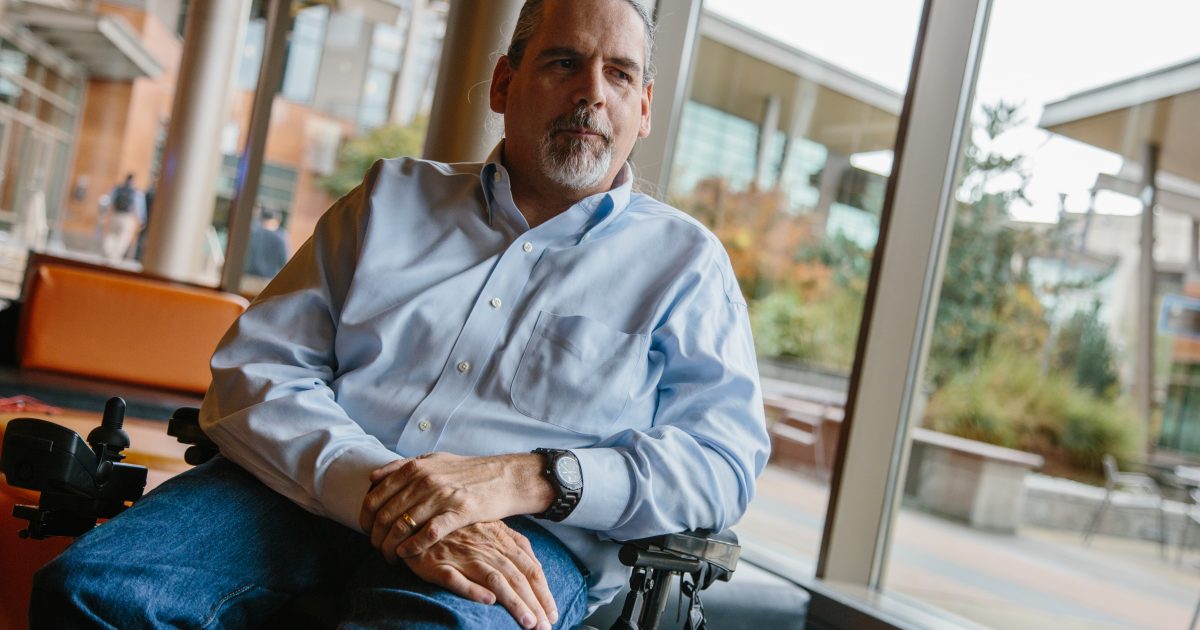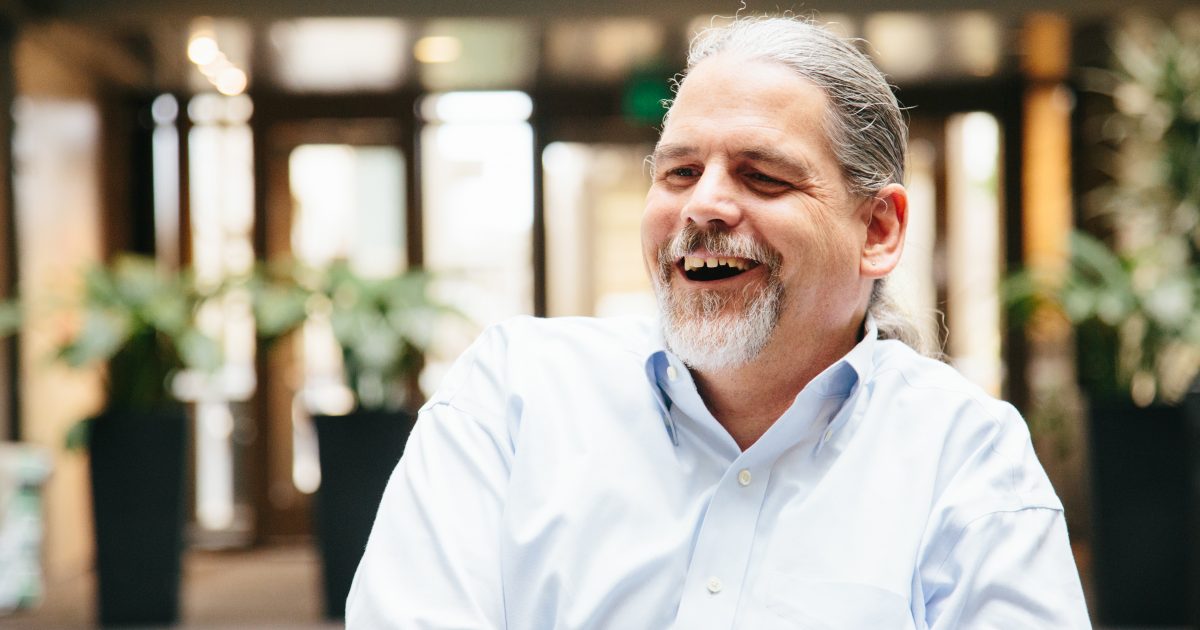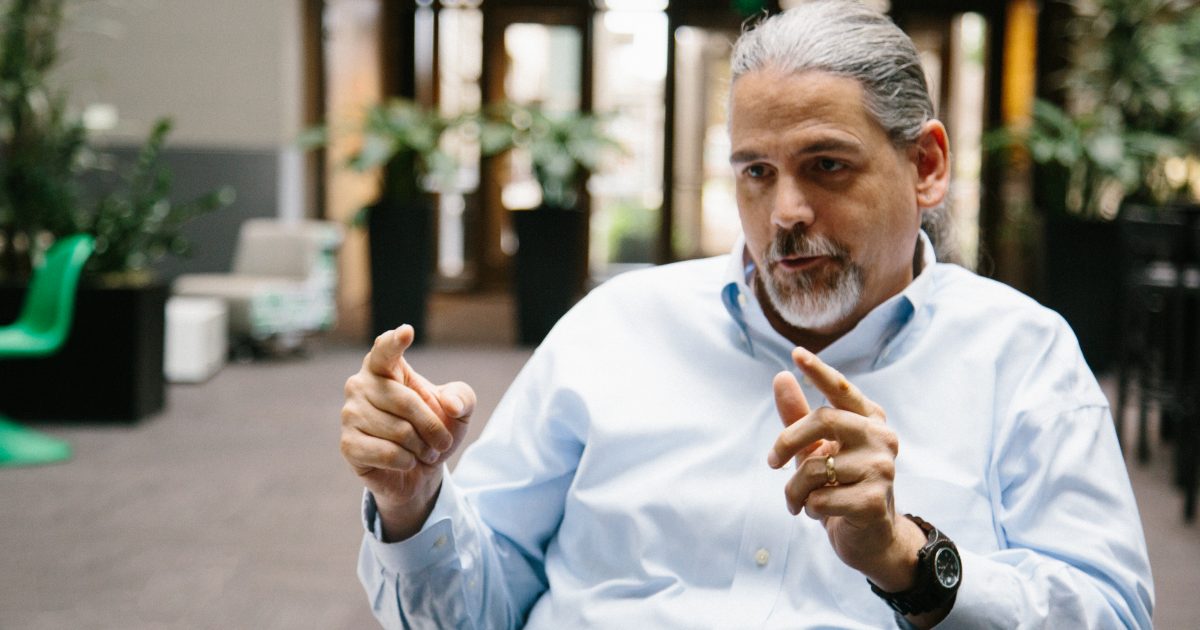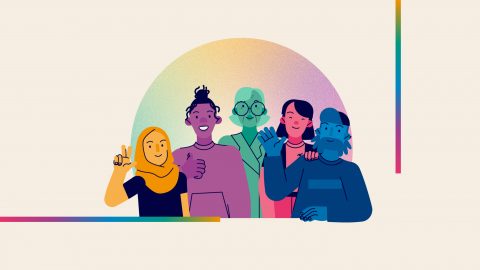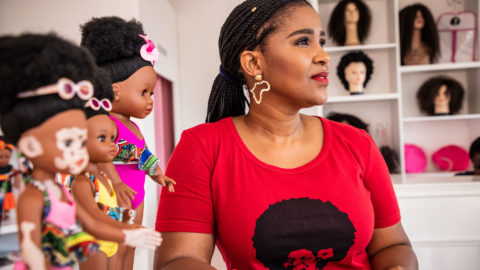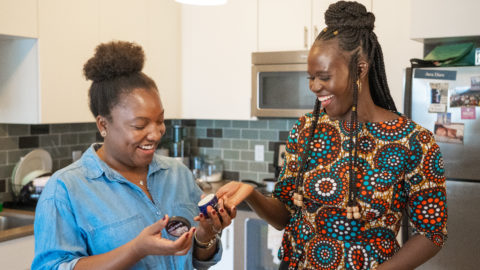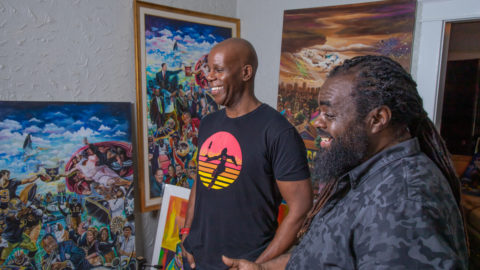Working for change from inside Microsoft
How one attorney manages dual roles
A framed photo of Albert Einstein, emblazoned with a quote, hangs in Stuart Pixley’s office. ‘I have no special talent. I am only passionately curious,’ it reads. “I fell in love with that poster,” says Pixley. Not surprising for someone who would like nothing better than to be a professional student if he wasn’t practicing law.
While his business card identifies Pixley as in-house legal counsel for the company, he has another role as well. He’s a champion for diversity.
Whether he’s practicing law or supporting inclusion, Pixley appreciates that at Microsoft, he has the freedom to do both. He’s a frontline attorney advising the Microsoft Health team about anything involving medical regulations.
Before he arrived at the company, Pixley worked in a variety of private law firms. Changing jobs wasn’t always by choice. Two of his previous employers’ firms collapsed—one less than a year after he started. In 2008, with the stock market plunging and the dust from his employer’s firm billowing behind him, Pixley reached out to a former coworker who was at Microsoft.
The networking paid off. There seemed to be an opening on his friend’s team, but that opportunity failed to blossom. Still, Corporate External Legal Affairs (CELA) helped him find another position, this one on the Antitrust Compliance Team.
Prior to working with Microsoft recruiters, he’d had to contend with companies treating him with “odd combinations of kid gloves” and “not taking him seriously enough.” Once he had an interviewer ask about the limits of reasonable accommodation—a subject completely unrelated to the position he was interviewing for. “As if I should know better than anyone else,” he says.
That “out of the blue” interjection put Pixley on edge. Immediately, he knew the questioner wasn’t interested in hiring him. “I just wanted to be a lawyer. I didn’t want to be a disability rights lawyer,” he says. He’d been pigeonholed.
Decision makers can make assumptions, and they’re rarely flattering. Pixley did well in law school, and even though he did “a ton of interviewing,” he had “far fewer callbacks than other students.” Fortunately, job hunting has proved easier as he’s aged. “You have more accomplishments you can point to,” he says.
“Microsoft was ‘Marvelous'”
Refreshingly, his experience at Microsoft “was marvelous”. From the beginning, “it was clear folks were open-minded” and that they saw him “as an asset.” CELA recruiters talked about what it was like to work at the company. They were so forthcoming he easily visualized how he would fit. But what most impressed him was how they worked to find him a viable opportunity within their ranks after the first opening didn’t pan out. And after he started, CELA has encouraged his involvement in the department’s legal diversity efforts.
His diversity work has taken various forms. Six years ago, Pixley was instrumental in Microsoft joining the American Bar Association’s (ABA) “Pledge for Change.” The “Pledge” is modeled after the “Call to Action” program. Companies that connect with the program assert they value increasing race and gender diversity in the legal profession. The “Pledge” is the disability version of that same concept, and it brings disability into a diversity framework.
He finds Microsoft’s willingness to think about disability in a diversity context welcome and unique. When a company uses this framework, it is affirming that people with disabilities are an integral part of the diversity community. “It flips the discussion entirely,” says Pixley.
Suddenly, “the company’s internal awareness isn’t focused on ‘let’s accommodate the individual,’ but on ‘cultural competence for the company,’” he says. The shift “does more than include diverse people—it empowers them.”
This evolution is central to Microsoft’s ability to innovate—to create technologies built for all customers—and is essential to the company fulfilling its mission: to empower every person and every organization on the planet to achieve more.
Pixley is enjoying his new role on the Artificial Intelligence & Research team, where he acts as frontline counsel for the Microsoft Health Team. This is a more business-focused position than his previous job on the Antitrust Compliance Team, where he specialized in transactional law.
Rima Alaily, assistant general counsel for the Cloud and Enterprise Marketing group—and the current lead for all CELA diversity—used to work with Pixley on his former team. As a coworker, Alaily appreciates how he’s willing to share his personal experience, which in turn educates those around him. He’s willing to talk about his own disability, the broader context of what it means to be disabled, the range of experiences people with disabilities have, and how they can contribute.
“I really value his grit and persistence,” says Mary Snapp, corporate vice president of Microsoft Philanthropies. She says Pixley “maintains optimism and perseverance” to making change, even when the pace might seem glacial.
In the spring of 2014, Snapp accepted, on Microsoft’s behalf, the ABA’s award for disability inclusion. The award recognizes a company’s commitment to increasing the disability diversity of its legal team.
Mario Madden, assistant general counsel for CELA, who hired Pixley onto the Health team earlier this year, mentioned that hearing Pixley’s laugh can “make people feel better.”
When the role in his group opened, Madden approached Pixley to see if he’d be interested in moving to a new team. Madden knew him as someone “who was super smart, results oriented, and very driven. Someone who got things done.”
Madden’s instinct was a good one. “He’s been a great fit,” he says. He’s come to count on Pixley’s ability to “bring humor and laughter to tense situations” and “provide a cooler head when people are getting heated.”
But it’s not only Pixley’s good nature and legal acumen that impresses his boss—it’s the way he’s approached learning a new role. He saw Pixley demonstrate “a curiosity and an ability to consume information” that stood out. “It’s not just a job for him—he enjoys being faced with challenging situations and learning about them as deeply as he can,” says Madden.



